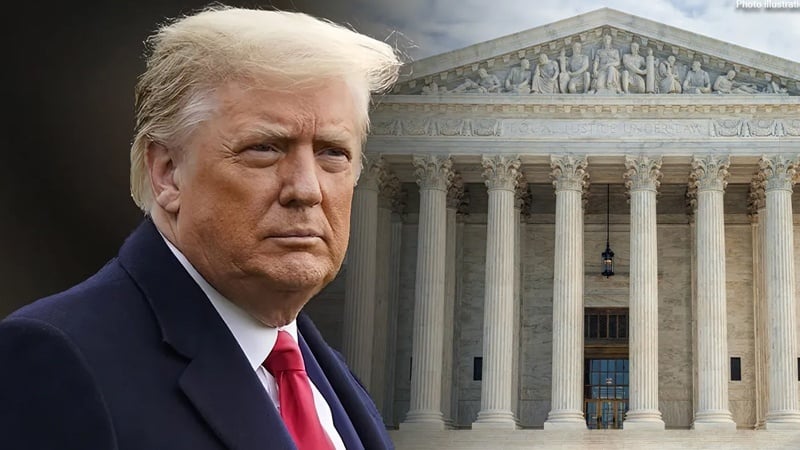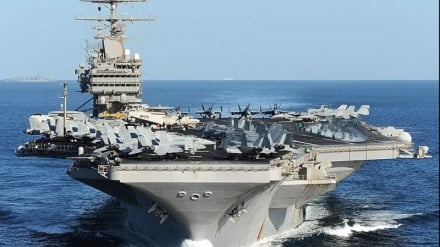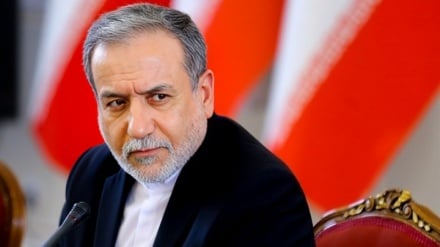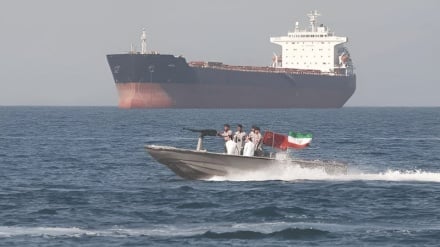Trump under Supreme Court’s scrutiny: Will presidential tariff powers be limited?
-

Trump under Supreme Court’s scrutiny: Will presidential tariff powers be limited?
Pars Today — Amid political pressure and electoral setbacks, the U.S. Supreme Court is reviewing Donald Trump’s tariff authority — a tool he considers a cornerstone of his foreign policy.
For U.S. President Donald Trump, tariffs have never been merely a trade tool. For months, he has used the threat of imposing heavy tariffs to negotiate peace agreements, influence domestic policies in other countries, and pressure foreign leaders to tighten border controls.
According to Pars Today, quoting IRNA, it now appears that the U.S. Supreme Court intends to strip at least part of this power from Trump and his administration. Two White House officials told Politico on Thursday, regarding the Supreme Court’s meeting with the Trump administration, that the atmosphere surrounding Trump’s government after Wednesday’s hearing was described as “gloomy.”
The hearing took place at a difficult time for the Trump administration, as it grapples with the consequences of the Republican Party’s electoral losses — a defeat that Trump has linked to the unprecedented government shutdown, while his allies accuse him of neglecting economic issues.
During the Supreme Court hearing, several high-ranking justices expressed doubts about Trump’s extensive use of the International Emergency Economic Powers Act of 1977 — a law under which Trump has imposed tariffs on nearly all of the U.S.’s trading partners without consulting Congress.
Even if the Supreme Court upholds some of Trump’s powers while rejecting others, the decision would be a major blow to the U.S. president, who has made tariffs not only the centerpiece of his second-term economic agenda but also a vital part of his foreign policy strategy.
Trump has tied his ability to impose immediate tariffs to peace efforts, such as those between India and Pakistan. He has also used this tool as a political weapon, including to punish Canada over a television ad he disliked.
Losing the ability to suddenly cripple a country economically would fundamentally change Trump’s interactions with both allies and adversaries.
According to Politico, at least three senior Trump administration officials were present at the crowded Supreme Court session on Wednesday: Treasury Secretary Scott Bessent, Commerce Secretary Howard Lutnick, and U.S. Trade Representative Jamieson Greer. These officials vigorously defended emergency tariffs as a vital tool of the president’s constitutional authority in foreign policy.
However, several Supreme Court justices expressed strong doubts that Congress ever intended to grant such broad powers to the president. They noted that revoking these powers would likely require a majority exceeding a presidential veto. The justices questioned whether, from a constitutional standpoint, Congress is even permitted to delegate such authority to the president — a particularly significant argument given that the Trump administration has repeatedly pushed the boundaries of its legal powers.
Justice Neil Gorsuch said: “What would stop Congress from delegating all of its responsibility for regulating foreign trade—or even declaring war—to the president? Suppose Congress decided tomorrow that it was tired of legislating and handed all matters over to the president. What would prevent that?”
According to the report, Justice Gorsuch took a more aggressive stance than expected toward the government’s arguments during the session.
A former senior Trump administration official, speaking to Politico on condition of anonymity, said: “Congress has always been protective of its tariff authority. It would be no surprise if it turns out that such a broad scope of power is now in the president’s hands, without Congress being able to reclaim it except with a majority that can override a veto.”
Since the Supreme Court’s final ruling will not be issued until early next year, Trump can, for now, continue his extensive use of the emergency law. If the justices uphold his use of the law, Trump will almost certainly see it as a green light to continue using tariffs as a multi-purpose tool. However, if the Court limits his powers, the White House is expected to seek ways to rebuild his tariff regime under more restricted laws that do not offer the same scope or speed as the 1977 statute.
Even Trump loyalists acknowledge that these alternative options would slow his operations, as many of them require months of investigation before tariffs can be implemented.


